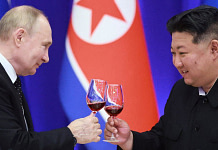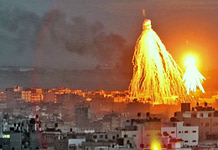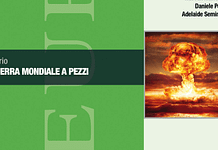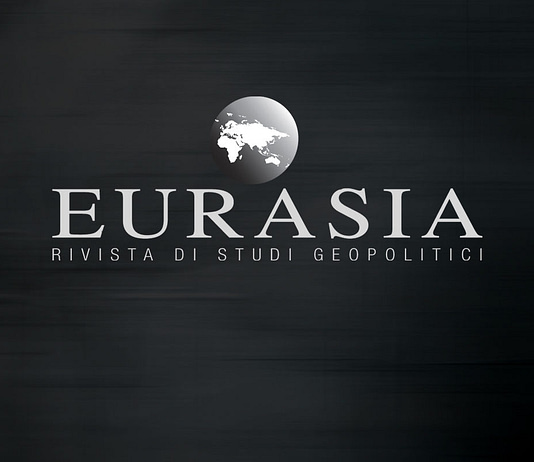INTERVIEW ON SYRIA
GRA: Western media confidently say that the fall of the current Syrian regime is inevitable. In your opinion, how well founded this prediction is,...
THE DOCTRINE OF DIVINE UNITY IN HELLENIC TRADITION
"The doctrine of Unity, i. e. the affirmation that the Principle of all existence is essentially One, is a fundamental point, shared by every...
Wikileaks, the Italy-Russia relations and the attempt of "colored revolution" in Italy
Tuesday, 14th December have been rejected the two no-confidence motions (one in the senate, or upper house, one in the chamber of deputies) against the Berlusconi government. The no-confidence motions were submitted by the two main opposition parties, but the leader of the revolt is Gianfranco Fini, speaker of the chamber and former main ally of Berlusconi. Fini, who was the co-founder of the centre-right party PdL (The People of Freedom, Italian: Il Popolo della Libertà), together with Berlusconi, and allied with Lega Nord in the government, is known for his strongly pro-American and pro-Israel views.
Russia and Europe: Topical Issues of Contemporary International Journalism
INTERNATIONAL CONFERENCE
«Russia and Europe: Topical Issues of Contemporary International Journalism»
Russian Foreign Affairs Ministry and Federal Communications Agency are organizing a conference, «Russia and Europe:...
Indian Autonomy and Multipolar Context
In spite of its great climatic and geo-morphologic heterogeneity, of its diverse ethnic groups, of its large variety of cultures and religions, and of the consequent lack in socioeconomic homogeneity, India seems to have successfully followed the rule that made the ancient Empires great, i.e. the preservation of unity in diversity. The efforts currently led by India to maintain its independence, its unity and economic and industrial development will be winning, in the medium and long term, only if New Delhi will focus its geopolitical interests on the framework of a Eurasian and multipolar perspective. Such perspective, in fact, would solve its choice between being a mere regional power with international aspirations or a global power with regional interests.
INTERVIEW WITH THE GROUP: "YES TO NUCLEAR"
Yes to nuclear power. More than a slogan. In Italy this appears to be a declaration of war right now. Yet, this is the...
Palestine claims full recognition to the U.N.
Just few days ago, some news about Palestine claiming its full national recognition within the United Nation Organisation reached the media. The 15-member Security...
USA: is payments default the answer?
The recent economic crisis seems not to have depleted its effects: the United States are now dealing with a very prominent scenario: the declaration...
Abkhazia, complete trust in Sergej V. Bagapsh
Abkhazia has long ago chosen its own direction, and the public reliance towards the current leadership is an important resource to rule this very particular country. Indeed, Abkhazia will soon clarify the main targets of its economic development, focusing especially on tourism and agronomy. Today, thanks to the improved political stability, there seems to be all the requirements for highly profitable investments, as stated in these days Christina Ozgan, the local Minister of Economy. For a long time, regional conflicts and international tensions have hampered the development of an extremely varied landscape which proved to be very interesting for different business initiatives. But today, in sight of the 2014 Olympic Winter Games in Sochi, few miles from the Abkhazian border, Sergej Bagapsh and his government could show to the international community the reality of a finally resurrected Abkhazia.
ITALIAN VOTE STRONG OPPOSITION TO FOREIGN-IMPOSED AUSTERITY
The Italian vote has provided the most unexpected outcome. The center-left coalition has lost its big chance to obtain a relevant victory by taking...
















